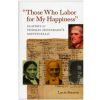Burwell Colbert
Burwell Colbert (1783-1862) was an enslaved domestic worker at Monticello. He was the son of Betty Brown and the grandson of Elizabeth Hemings. Colbert began his working life, at the age of ten, in the Mulberry Row nail-making shop, and later acquired skills in painting and window glazing. His work included painting the balusters and Chinese railing on the roof and the landau carriage built by his uncle John Hemmings and his cousin Joseph Fossett. Jefferson's high regard for Colbert was evident. Colbert was the only worker in the nailery "absolutely exempted from the whip" and only one of two slaves to receive an annual "gratuity" of twenty dollars.
During Jefferson's retirement, Burwell Colbert was "the main, principal servant" at Monticello, responsible for the running of the household. As an enslaved butler, he directed the work of enslaved housemaids, waiters, and porters. He was also Jefferson's personal servant, whose duties included laying out Jefferson's clothes and attending to his personal needs.
Colbert married his first cousin Critta, the daughter of Nance Hemings. Burwell and Critta Colbert, who died in 1819, had five daughters: Nancy, Susan, Emily, Martha, and Thenia. Colbert was one of only five people freed in Jefferson's will, in which he was also granted $300 to purchase the tools necessary to continue his trade as a painter and glazier. Because Critta Colbert had belonged to Jefferson's daughter and son-in-law, their children remained in slavery. In freedom, Colbert worked at the University of Virginia and at the houses of some of Jefferson's friends. In 1834, he married Elizabeth Battles, a free woman of color; they had three daughters (Sarah, Caroline, and Melinda). He died in 1862.[1]
 Explore: Slavery at Monticello Mobile Guide
Explore: Slavery at Monticello Mobile Guide

Available in Our Online Shop: "Those Who Labor for My Happiness"
References
- ^ Sarah Nicholas Randolph wrote to her aunt Cornelia Randolph in 1865, "Old Minerva died several years before the War and Burwell the second year of the War—we were all so sorry that we did not think at the time of having him buried at Monticello." Sarah Nicholas Randolph to Cornelia Randolph, December 7, 1865, Hubard Family Papers, University of North Carolina at Chapel Hill. Transcription available online in Jefferson Quotes and Family Letters.